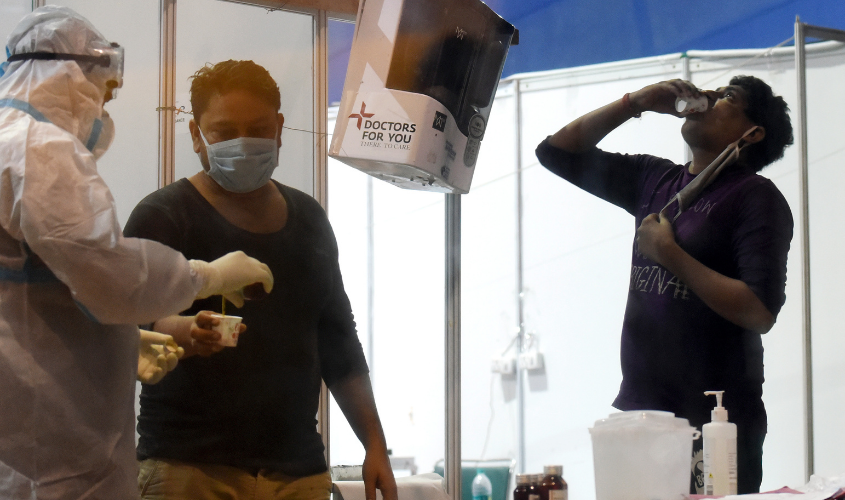New Delhi: As the Covid-19 pandemic has progressed over the last eight months, multiple therapeutic treatments have evolved over these months, many of which have shown promising results on patients affected by the virus.
“Therapeutic treatment” refers to a combination of drugs/medicines that are administered to sick patients to make them feel better and helps in the recovery of the patients.
Currently, two types of therapeutic treatments are being given to Covid-19 patients—one that includes a combination of antivirals which help to arrest the multiplication of the virus in the human body and the other is immune modulators which help to strengthen the immune system of the individual so that the virus does not multiply dangerously.
Some of the antivirals that are currently being used for the treatment of Covid-19 patients include Favipiravir, Remdesivir, Hydroxychloroquine or Chloroquine, Lopinavir and Ritonavir combinations and Ribanivir, among others.
Immune modulators like Dexamethasone, Azithromycin, Tocilizumab, Aspirin, among others, are also being used.
However, most of these drugs are currently under clinical trial and are being administered on patients on a case-by-case basis and according to doctors, a combination of these drugs has shown promising results on several patients and has, thus, been able to successfully bring down the mortality rate across the globe.
Dr Arvinder Singh Soin, Chairman, Liver Transplant at Medanta Hospital in Gurgaon, told The Sunday Guardian, “Currently, we know much better about the diseases than what we knew months ago. A number of drugs and their combinations are being given to patients depending on the severity of the infection in the patient and this in most cases has shown promising results. However, the problem is that not a single treatment is known to the world for the effective treatment of Covid-19 and, therefore, doctors who are experienced in treating Covid-19 are going according to their own experiences. They go for the combination of drugs based on their experiences, but for mild patients they are going for drugs like Doxycycline (antibiotic), Ivermectin, with or without Hydroxychloroquine, or more than HCQ, Fabiflu (Favipiravir) is the favoured thing now. Mild disease is something which can be treated at home and does not need hospitalisation. I can say most of the cases would get okay and would not progress to moderate or severe disease.”
However, Dr Soin said that patients with co-morbidities like diabetes, organ failure or organ dysfunction, obesity and older population are at a higher risk of progressing to severe or moderate cases and, therefore, such patients should keep a check on their health and opt for tele-consultations on a regular basis if infected by the virus.
“Moderate disease needs to be treated in hospital because that is when it needs hospitalisation due to the drop in oxygen level or a persistent fever or other complications. In such cases, Remdesivir becomes an option and where the moderate disease is not becoming better, people like to treat it with Tocilizumab or plasma therapy. The other thing which people would get during moderate diseases is steroids—so Remdesivir and steroids are the favourites for moderate diseases. People who get worse will get Tocilizumab with or without plasma therapy,” Dr Soin said.
Doctors also claim that the experience with the virus has helped increase their understanding of the disease partially and these combinations of therapeutic treatments have been able to bring down the mortality rate drastically.
The mortality rate, which at the beginning of the pandemic was at about 3% to 4%, has been brought down to about 1.5% and this has not been the case only for India, but also in the western countries which have a more susceptible population; such therapeutic treatments have been able to bring down the mortality rate by half.
Dr S.P. Boytra, Chairman, Department of Medicine, Sir Ganga Ram Hospital, told The Sunday Guardian, “So far, there is no treatment for Covid-19. The best form of treatment is prevention. But even then, when a patient is infected with the virus, a series of combinational drugs are given to treat them and this has shown promising results. These treatments, which are still under clinical trials, are showing positive impacts on patients and we have seen most of them recovering. But having said this, we are yet to know the long-term implication of this disease. It is still new and we do not know what further complication this virus causes in the body as we have seen some cases of infected people coming back to us with complications after recovery.”

